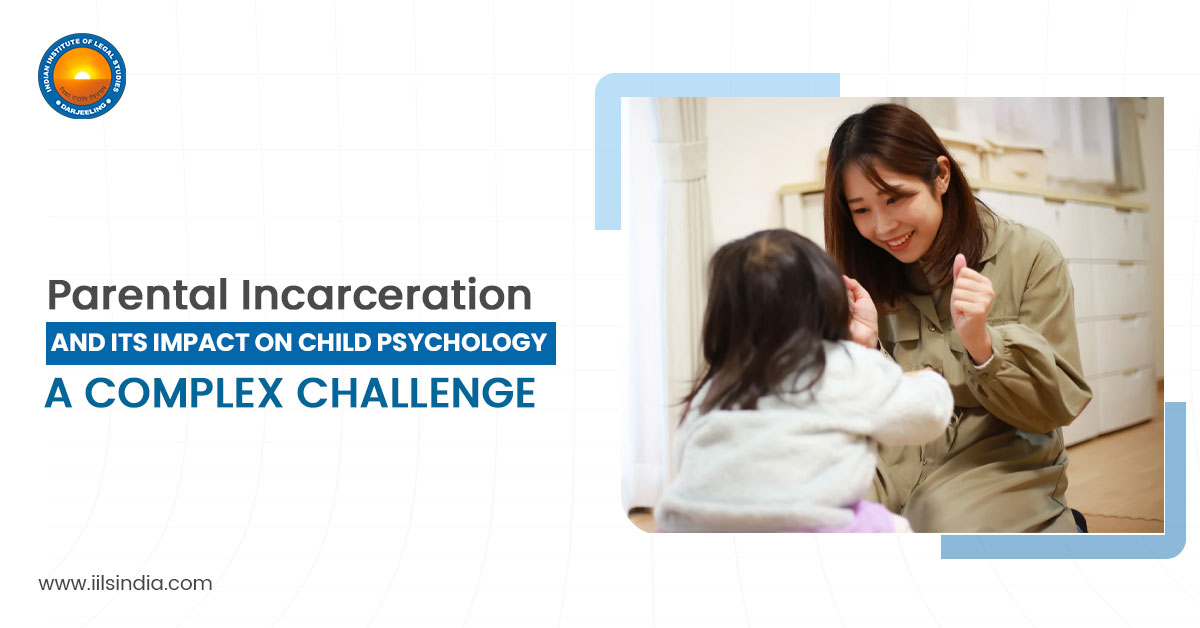Parental incarceration is a growing issue that affects millions of children worldwide. When a parent is incarcerated, the emotional and psychological well-being of the child is often placed at risk. Children in these situations face a unique set of challenges that can significantly shape their development and mental health and such children require proper care and counseling. Many best colleges for law organizes students and teachers visits in institutions where such children’s are kept for care and rehabilitation and organizes camps to educate such children on various matters of Legal and general importance. Understanding the impact of parental incarceration on child psychology is crucial to addressing the needs of these children and providing them with the support they need to overcome the challenges they face.
The Emotional Toll of Parental Incarceration
The emotional consequences of parental incarceration can be profound. Children often experience a range of intense emotions, including grief, anger, confusion, and shame. The sudden separation from a parent can lead to feelings of abandonment or rejection, particularly if the incarceration is sudden or the child has not had the chance to process the situation.
Additionally, the stigma associated with having an incarcerated parent can make children feel isolated from their peers, leading to social withdrawal and feelings of low self-worth.
In some cases, children may experience the trauma of witnessing their parent’s arrest or the chaos surrounding their incarceration. This traumatic experience can have long-lasting effects, influencing the child’s sense of safety and trust in the world around them.
Cognitive and Behavioral Effects
Parental incarceration can also have significant effects on a child's cognitive and behavioral development. Children may struggle academically due to the emotional strain they are under. They might have trouble concentrating, staying motivated, or participating in class activities. Additionally, they may experience behavioral issues such as aggression, acting out, or withdrawal. These children are more likely to face disruptions in their home environment, which can contribute to inconsistent routines, lack of supervision, and poor school attendance.
The absence of a parent often leads to instability in the child’s life, and the stress associated with this can result in difficulties in forming healthy relationships with peers and authority figures. This instability can manifest in both externalized behaviors (such as delinquency) and internalized ones (like depression or anxiety).
Long-Term Psychological Effects
Over time, the psychological effects of parental incarceration may become more pronounced. Children who experience the incarceration of a parent are at a higher risk for mental health issues such as depression, anxiety, and post-traumatic stress disorder (PTSD). Studies have shown that children of incarcerated parents are also more likely to engage in risky behaviors, including substance abuse and criminal activity, later in life.
The long-term consequences of parental incarceration can also affect a child’s ability to form healthy relationships as an adult. Attachment issues, stemming from the early loss of a parent figure, can contribute to difficulties in trusting others and maintaining intimate relationships. Furthermore, the experience may influence the child’s own parenting style in the future, potentially perpetuating a cycle of incarceration and trauma across generations.
Socioeconomic Impact
Beyond the emotional and psychological effects, parental incarceration often leads to significant socioeconomic challenges. Families with incarcerated parents often face financial hardship due to the loss of income, and children may be placed in foster care or experience a lack of stability in their living arrangements. These socioeconomic pressures can compound the emotional distress a child is already experiencing, creating an environment of chronic stress that further exacerbates their psychological difficulties.
The strain on families can also lead to a lack of access to mental health services, further hindering the child’s ability to cope with the situation. The financial instability resulting from a parent’s incarceration can affect a child’s access to education, extracurricular activities, and other resources that support healthy development.
Coping Strategies and Support Systems
Despite these challenges, children of incarcerated parents are resilient, and with the right support, many can overcome the difficulties associated with parental incarceration. The involvement of extended family members, community programs, and social services can provide much-needed stability and emotional support for these children. Mentorship programs, counseling, and peer support groups can help children process their emotions and build coping strategies.
Education also plays a critical role in mitigating the negative effects of parental incarceration. Schools can be a safe space for children, offering stability and emotional support. Teachers and school counselors who are trained to recognize the signs of distress in children can offer critical interventions that may prevent long-term psychological issues.
Programs that address the needs of incarcerated parents, such as family counseling, prison visitation programs, and parenting education, can help maintain the bond between parent and child. These programs allow incarcerated parents to stay engaged in their child’s life, providing emotional reassurance and reducing the sense of abandonment.
Conclusion
The impact of parental incarceration on child psychology is significant, affecting emotional well- being, cognitive development, and behavioral functioning. The experience of having a parent incarcerated creates unique challenges that children must navigate, often leading to long-term mental health struggles. However, with the right support systems in place, children can build resilience and develop the skills needed to thrive despite their circumstances.
Society as a whole must acknowledge the emotional and psychological toll of parental incarceration and take steps to provide the necessary support for affected children. By offering emotional, educational, and social resources, many best colleges for law whelp these children break the cycle of trauma and pave the way for healthier futures by organizing camps to educate the children’s with the aim of generating awareness.

